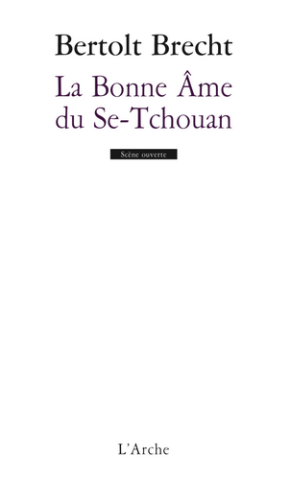- 22 views

LA BONNE ÂME DU SE-TCHOUAN
On May 18, 1941, Lion Feuchtwanger wrote to Brecht from his Californian exile: "I have received the manuscript of The Good Soul of Se-Tchouan. It's a small miracle that in the midst of this barbaric confusion you were able to produce something so beautiful, clear, tranquil and classical."
In Se-Tchouan, a very remote province of China, three gods are traveling. They're looking for the right ones. They find just one: Shen Té, the prostitute. To reward her, they give her some money; she quits her job and opens a tobacco store. The trouble begins: to cross over to the other side of misery is also to face up to it. Physical and social misery. But also moral misery. In the clear-sighted depiction of the inhabitants of the Se-Tchouan, Brecht's sadness and revolt at the inability of peoples to overcome structures of domination speak volumes. Brecht wrote this play as the war was completing its destruction of his country.
